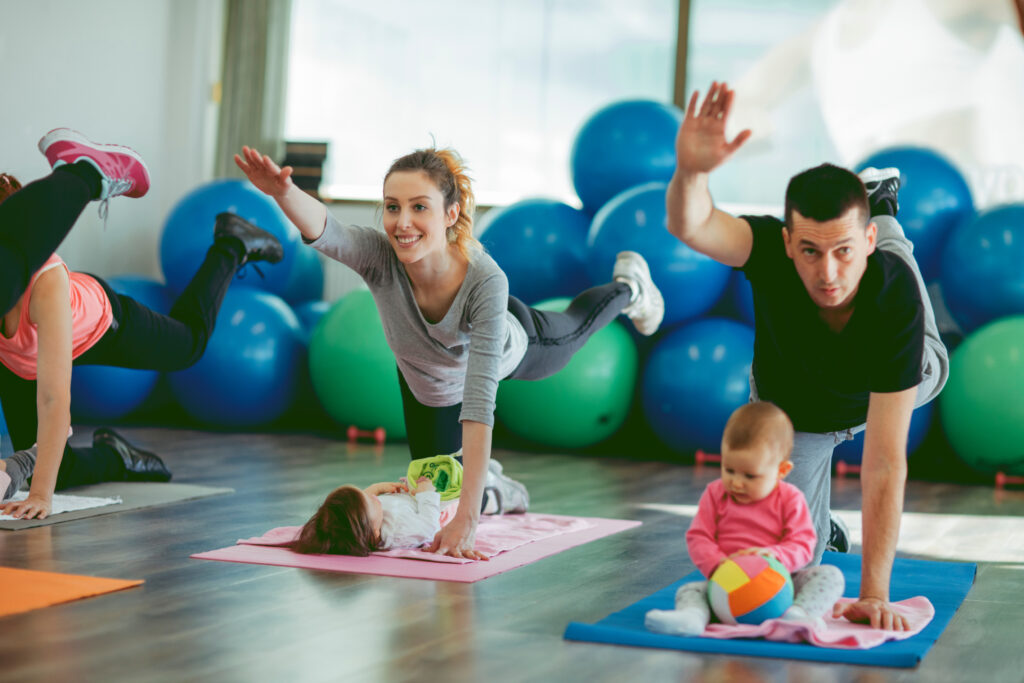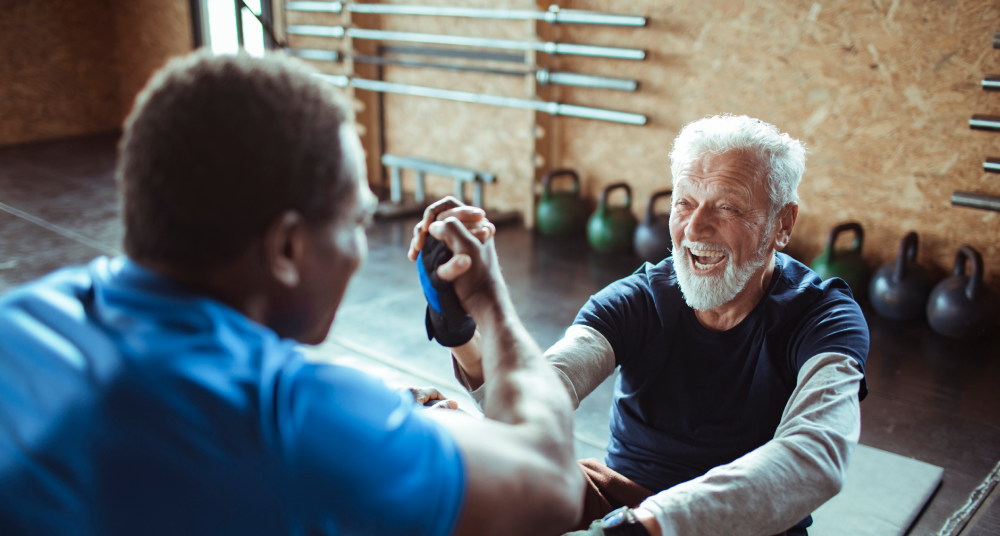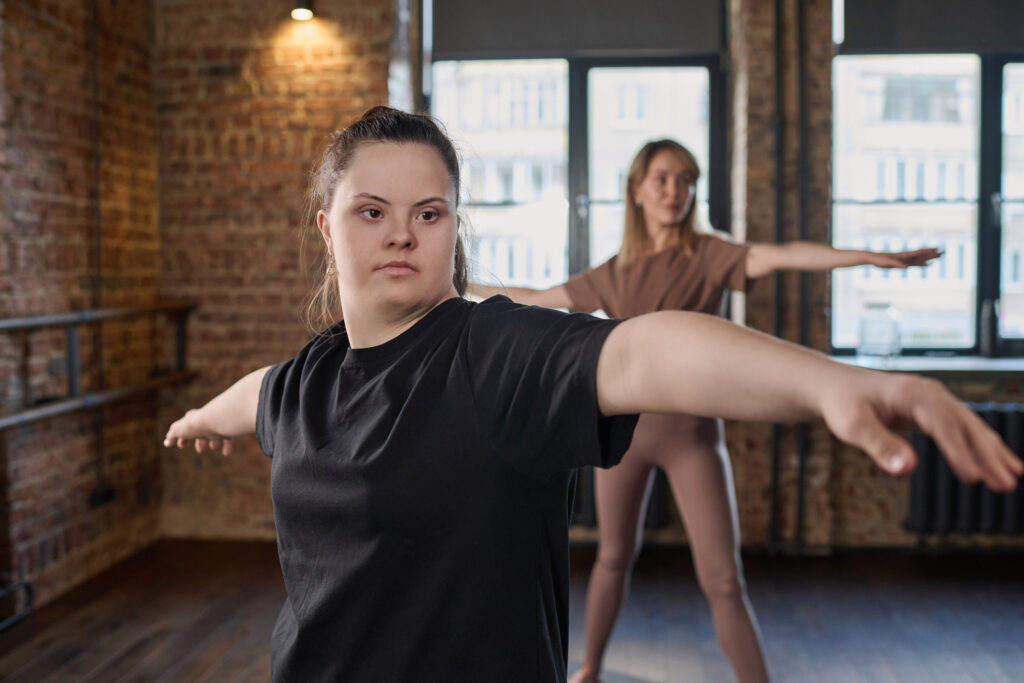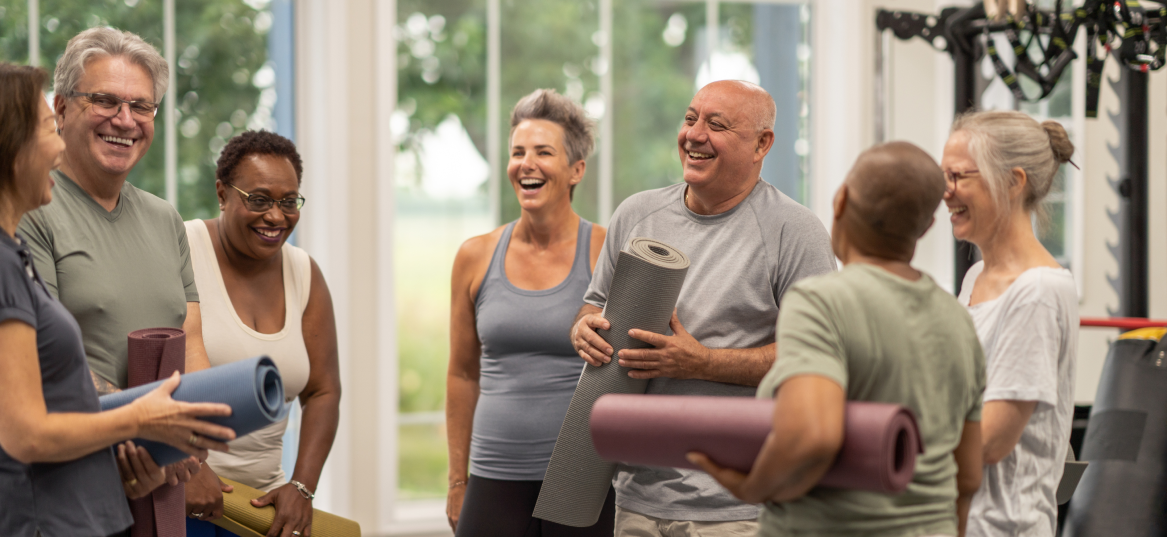There are all kinds of folks out there: students, busy parents, people with disabilities and special needs, pregnant women, those with injuries, shift workers; a mixed bag of ages, genders, ethnicities, experiences, and preferences.
Did you know that creating a gym environment that welcomes and caters for diversity can actually drive growth? PLUS the benefits to your business can include increased revenue, better member retention, and a stronger defence against market fluctuations.
Sounds pretty great, right? And we haven’t even mentioned the endless benefits to your members and the community. Join us as we explore the ins and outs and opportunities of diversifying your membership base.
Why is diversification important?
It goes without saying that you want your gym to remain strong and successful for a long time. The best way to do this is to ensure that your business is sustainable, and this is where having a diverse member base is absolutely crucial.
Not only will diversification strengthen your gym (in the ways we’ll outline shortly), but the positive effects it can have on your community are endless.
You already know that exercise provides positive benefits across all areas of life: physically, emotionally, mentally, and socially. Everyone should be able to experience those benefits and improve their health and wellbeing. Consider the ageing population, an ever-growing demographic in Australia, who absolutely need inclusive fitness programs to ensure their overall wellbeing. Or new parents, who may struggle to prioritise their health when they need energy and vitality more than ever!

So, what are the benefits of diversification?
Gah! There are so many potential benefits we couldn’t even list them all, but here are some of the best ones to highlight the overall advantages.
- When you really tune into what your members want and need, it makes them more likely to stick around and stay involved and your retention rates will rock. Plus, by attracting a diverse clientele, you can better tap into any needs and preferences, thus strengthening your offering, which will attract new members. It’s a positive cycle!
- By strengthening your brand and reputation in the community, you’re not just building a name for your business; you’re also fostering stronger connections with everyone around you. Be the gym that people talk about with their friends, or recommend to their patients, or can’t resist trying because of its obvious commitment to catering for everyone.
- Wow people with your diverse and inclusive offerings and services tailored to different interests or needs. Things like yoga classes, childcare, adapted spaces, or specialised training programs not only enhance your gym’s overall appeal, but they also bring in more revenue.
- You will genuinely be helping people, real people, improve their lives, and isn’t that what the fitness business is all about?
How do you know if you need to diversify?
The first step is to do a bit of recon and work out the demographics and characteristics of your existing member base. This can be done in several ways:
- Observe the gym to see who is using it (although there’s only so much trustworthy info you can get from this, it can still give you a broad overview).
- Engage in conversations to ascertain the needs and preferences of members.
- Create surveys or questionnaires to find out what you need to know. It would be nice to provide an incentive for completing these in the form of little rewards: branded merch for existing members and free trial session passes for non-members could be tempting.
Using the data you’ve collected, identify any areas where your gym may be lacking. These are golden opportunities to improve your diversity and inclusivity offerings!
How can you diversify your gym’s membership base?
There are lots of approaches you can take depending on what you found out with your research. It’s recommended that the offerings and services you develop cater to a wide range of demographics, including age groups, fitness levels, cultural backgrounds, and socioeconomic statuses.
Having such a wide appeal will help to widen your gym’s reach, and you may become the place that’s worth the bit of extra travel because of its inclusivity and range. By specifically targeting underrepresented or underserved individuals or communities, you can significantly improve the diversity of your members and improve lives at the same time.
Some examples of what you could offer include:
- The most recent survey results reported that 1 in 4 New Zealanders are living with a disability. You could consider services that cater to these members such as specialised classes or virtual sessions. And of course your facilities should be equipped for accessibility and ease of use. Equity is important!
- There were over 56,955 live births in New Zealand by the end of 2023. That’s a lot of new parents needing health and fitness guidance! From post-partum classes where new mums can bring their bubs, to childcare services onsite, to busy-family-friendly class times/durations, there are heaps of ways to accommodate and attract this huge potential market.
- There’s more awareness rising about the harm that social media and the internet have had on the younger generations. Appeal to teens with classes just for them that will give them an inviting, safe place to work off those frustrations. Keep them keen by mixing things up. Circuits, boxercise, yoga, weights. Let them try a bunch of stuff to see what lights a fire under them.
- Some supermarkets in New Zealand have introduced a ‘quiet hour’ in their stores, where lights are lowered and any music, PA announcements, or register noises are avoided or turned down low. This acknowledges and improves accessibility for those with sensory sensitivities. You could implement something similar in your gym, such as a time slot where people working out won’t be bombarded by loud music and bright lighting.
- You may not want to become a single gender gym, but you could consider offering male- or female-only sessions or time slots. Some people feel more comfortable working out this way, and sometimes religions require it. Though be mindful that being inclusive extends to the LGBTQI+ and transgender members of the community.
- People with injuries usually have to sit it out and there’s a risk they won’t continue with their fitness regime. How about gentle/recovery sessions to keep them coming in and engaging with the gym community? You could offer a reduced rate while they are on ‘light duties’.
- As we learned at the recent FuelSYD 2024, Australia and New Zealand have ageing populations. By 2026 more than 22% of Australians will be aged over 65. With this large demographic mobility is the name of the game. Find ways to incorporate senior mobility offerings in your area. Ideas include running seniors classes, employing a seniors-focused PT, or offering a mobile PT service. Loneliness is rife amongst the ageing community so a mobile service fills a social, community need as well.

How can you create an inclusive environment?
Creating an inclusive gym environment and culture involves fostering an atmosphere where everyone feels welcome, respected, and supported in their fitness journey regardless of their background, abilities, or fitness level. Here are some strategies to achieve this:
Diverse staff and trainers: Hire a diverse team of trainers and staff members who reflect the demographics of your community. Having a diverse team can help create a welcoming environment for people from various backgrounds.
Provide training on diversity and inclusion: Offer training sessions for your staff on topics such as creating an inclusive environment, cultural competency, and implicit bias. This will help them understand different perspectives and ensure they can effectively support all gym members.
Accessible facilities and equipment: Ensure that your gym facilities and equipment are accessible to people with disabilities. This includes having ramps, wide aisles, accessible bathrooms, and equipment that can be easily used by people with mobility impairments.
Inclusive language and imagery: Use inclusive language in all communications, signage, and promotional materials. Avoid language that may be exclusive or offensive to certain groups. Additionally, display diverse imagery throughout the gym to reflect the diversity of your members.
Create safe spaces: Designate certain areas of the gym as safe spaces where people can feel comfortable being themselves without fear of judgement or harassment. This could include LGBTQI+ friendly spaces or women-only workout areas.
Celebrate diversity: Host events and activities that celebrate diversity and promote inclusion within the gym community. This could include cultural festivals, Pride events, or workshops on diversity-related topics.
Encourage feedback: Implement an easy feedback system where members can provide input on their experiences at the gym. Encourage open communication and actively listen to feedback to identify areas for improvement.
Community engagement: Get involved in the local community and partner with organisations that support underserved populations. This could involve hosting fitness events for community groups or offering scholarships for low-income individuals.
Lead by example: As gym management, lead by example by demonstrating inclusive behaviour and attitudes. Encourage your staff and members to treat each other with respect and empathy, creating a positive and inclusive gym culture from the top down.

What should you be aware of before you begin?
There’s always a risk when putting all your eggs in one basket. Try not to rely heavily on a single market segment or demographic if you want to grow. Test out smaller things first, and as we mentioned earlier, be sure to appeal to a wide range of people.
Be mindful that certain demographics or groups will have specific requirements around certifications and training. Those with disabilities, pregnant women, injured people, minors; do your research and make sure any legalities are covered, for the protection of your members AND your business!
The wrap up…
How exciting is this? Tapping into these many different demographics and communities and coming up with new and exciting ways to attract, engage and delight them is such a fun way to diversify your member base and grow your gym business.
By taking stock of your current members and working out where the gaps are (and what needs you can meet in the community), you will be able to design and modify your services and offerings to attract many more people to your business.
Special offerings for target groups based on things like age, socioeconomic status, gender, or special needs can significantly grow your business and make it more resilient against market fluctuations.
By going the extra mile to create a safe, inclusive, welcoming environment, you can make your gym the go-to place for health and wellbeing, meaning your business will grow and thrive – jus like the community you’re helping!
Diversify away!

by Tayler Maich Commercial Director
-
First published: 04 June 2024
Written by: Tayler Maich
